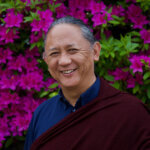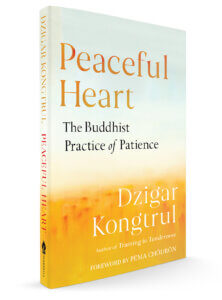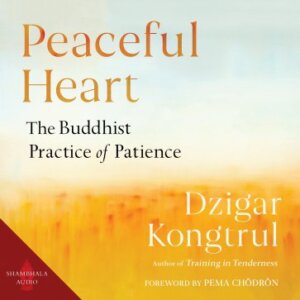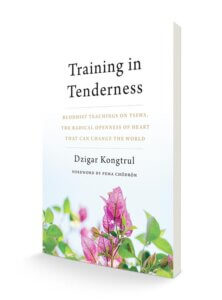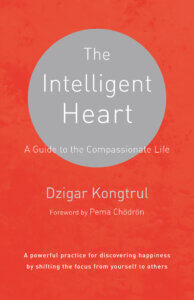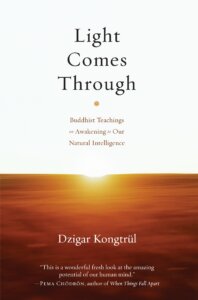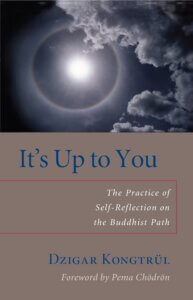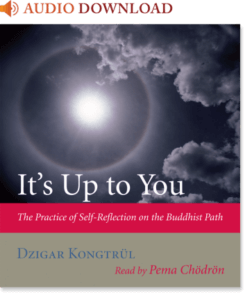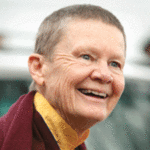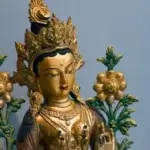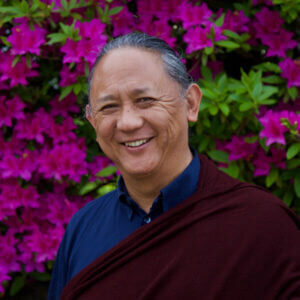
About Dzigar Kongtrul Rinpoche
Dzigar Kongtrul was born in the Northern Indian province of Himachal to his parents Neten Chokling Rinpoche and Mayum Tsewang Palden. During his monastic education, he was trained in the Nyingma school's Longchen Nyingtik lineage under his root guru, the renowned Dilgo Khyentse Rinpoche. Additionally, he studied extensively under Tulku Urgyen Rinpoche and Nyoshul Khen Rinpoche.
In 1989, he moved to the United States with his family where he began a five-year tenure as professor of Buddhist philosophy at Naropa University. He later founded Mangala Shri Bhuti, with the intent to establish a genuine sangha of the Longchen Nyingtik in the west. At present MSB has five main centers including two in Colorado, and one in Vermont, Brazil, and India along with several Mangalam Dharma Groups around the world.
When not guiding students in long-term retreats and not in retreat himself, Rinpoche travels widely throughout the world teaching and furthering his own education. He is also an avid artist, seeing creativity as an extension of his Dharma practice.
"The goal of most conventional thinking is to preserve the ego. This is our unconscious habit and default mode. The unconventional thinking of dharma, however, aims to preserve the peaceful heart of tsewa. This requires conscious reasoning that is based on wisdom rather than habit."
-Dzigar Kongtrul, Peaceful Heart
Peaceful Heart
The Buddhist Practice of Patience
by Dzigar Kongtrul Rinpoche
An introductory guide to cultivating patience and opening your heart to difficult circumstances from leading Buddhist teacher, Dzigar Kongtrul Rinpoche.
In the Buddhist tradition, “patience” is our mind’s ability to work positively with anything that bothers us—a vast spectrum of particulars that all boil down to not getting what we want or getting what we don’t want. In fluid, accessible language, Dzigar Kongtrul expands on teachings by the ancient sage Shantideva that contain numerous powerful and surprising methods for preventing our minds from becoming consumed by what bothers us—especially in anger. The result of practicing patience is a state of mind where we can feel at home in every situation and be fully available to love and care for others. Patience is the lifeblood of a peaceful heart.
Training in Tenderness
Buddhist Teachings on Tsewa, the Radical Openness of Heart That Can Change the World
by Dzigar Kongtrul Rinpoche
This is a call to a revolution of heart. In Tibetan Buddhism, it is taught that one of the most essential qualities of enlightenment is tsewa, a form of warm energy and openness of heart. It is the warmth we express and receive through empathy with others, especially those closest to us. In this compact book, Dzigar Kongtrul opens the door to this life-changing energy and shows us how to transform our attitude toward ourselves and those around us through its practice. This is a guide to the building blocks of compassion and the purest and deepest form of happiness. And with these tools, we can awaken the most powerful force for healing our fractured world—a tender, open heart.
"Dzigar Kongtrul stresses the importance of having a good relationship with oneself; otherwise, the path of awakening can backfire and fuel discouragement."
-Pema Chödrön, No time to Lose
The Intelligent Heart
A Guide to the Compassionate Heart
by Dzigar Kongtrul Rinpoche
Compassion arises naturally when one comes to perceive the lack of solid distinction between self and other. The Buddhist practice known as tonglen—in which one consciously exchanges self for other—is a skillful method for getting to that truthful perception. In this, his commentary on the renowned Tibetan lojong (mind training) text the Seven Points of Mind Training, Dzigar Kongtrul reveals tonglen to be the true heart and essence of all mind-training practices. He shows how to train the mind in a way that infuses every moment of life with uncontrived kindness toward all.
"The Intelligent Heart shines a clear light on the method for exchanging self for other, developing compassion, and freeing one’s heart. In addition, it’s fun to read, with helpful illustrations and a keen sense of humor."
—Sharon Salzberg, author of Lovingkindness and Real Happiness
Light Comes Through
A Guide to the Compassionate Heart
by Dzigar Kongtrul Rinpoche
Buddhahood, says Dzigar Kongtrül, is nothing but an unobstructed experience of the nature of mind, boundlessly spacious and limitlessly compassionate. The trick is that in order to see the mind accurately, we must use the particular aspect of mind he calls natural intelligence. Natural intelligence enables us to discriminate between what helps or hinders us. But most of all, it’s the part of us that searches for happiness and meaning. In Light Comes Through, he shows us how to skillfully use our wish for happiness as a tool in awakening to the joyous wisdom of mind.
It's Up to You
The Practice of Self-Reflection on the Buddhist Path
by Dzigar Kongtrul Rinpoche
On the spiritual path we speak of enlightenment. But how do we reconcile the idea of enlightenment with what we see when we look in the mirror—when insecurities, doubts, and self-centered tendencies arise in our minds? Dzigar Kongtrül suggests that we need not feel “doomed” when these experiences surface. In fact, such experiences are not a problem if we are able to simply let them arise without judging them or investing them with so much meaning. This approach to experience is what Kongtrül calls self-reflection.
Self-reflection is a practice, a path, and an attitude. It is the spirit of taking an interest in that which we usually try to push away. When we practice self-reflection we take liberation into our own hands and accept the challenge and personal empowerment in Kongtrül’s title: it’s up to you.
Related Reading Guides
Related Reading
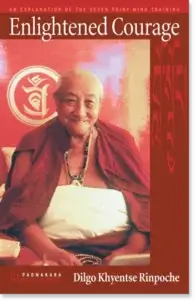
Enlightened Courage
An Explanation of the Seven-Point Mind Training
by Dilgo Khyentse Rinpoche
Highly respected by thousands of students throughout the world, Dilgo Khyentse Rinpoche was one of the foremost poets, scholars, philosophers, and meditation masters of our time. Here he speaks frankly, drawing on his own life experience. Condensing the compassionate path to Buddhahood into practical instructions that use the circumstances of everyday life, Rinpoche presents the Seven-Point Mind Training—the very core of the entire Tibetan Buddhist practice.
Dilgo Khyentse Rinpoche
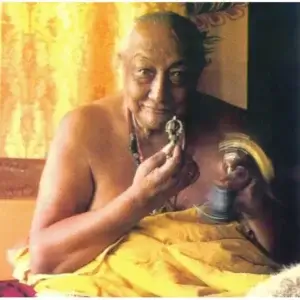 Dilgo Khyentse Rinpoche (1910–1991) was a highly accomplished meditation master, scholar, and poet, and a principal holder of the Nyingma lineage. His extraordinary depth of realization enabled him to be, for all who met him, a foundation of loving-kindness, wisdom, and compassion. A dedicated exponent of the nonsectarian Rime movement, Khyentse Rinpoche was respected by all schools of Tibetan Buddhism and taught many eminent teachers, including His Holiness the Dalai Lama. He tirelessly worked to uphold the Dharma through the publication of texts, the building of monasteries and stupas, and by offering instruction to thousands of people throughout the world. His writings in Tibetan fill twenty-five volumes.
Dilgo Khyentse Rinpoche (1910–1991) was a highly accomplished meditation master, scholar, and poet, and a principal holder of the Nyingma lineage. His extraordinary depth of realization enabled him to be, for all who met him, a foundation of loving-kindness, wisdom, and compassion. A dedicated exponent of the nonsectarian Rime movement, Khyentse Rinpoche was respected by all schools of Tibetan Buddhism and taught many eminent teachers, including His Holiness the Dalai Lama. He tirelessly worked to uphold the Dharma through the publication of texts, the building of monasteries and stupas, and by offering instruction to thousands of people throughout the world. His writings in Tibetan fill twenty-five volumes.
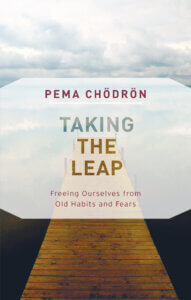
Taking the Leap
Freeing Ourselves from old Habits and Fears
by Pema Chödrön
Ever feel trapped in the same old habits and painful emotions time and time again? These are patterns we all face, and sometimes they feel impossible to shake. So how can we get unstuck? Drawing on time-honored Buddhist teachings on shenpa (all the attachments and compulsions that cause us suffering), Pema Chödrön shows how certain habits of mind tend to “hook” us and get us stuck in states of anger, blame, self-hatred, addiction, and so much more—and, most of all, how we can liberate ourselves from them. “This path entails uncovering three basic human qualities,” explains Pema. “They are natural intelligence, natural warmth, and natural openness. Everyone, everywhere, all over the globe, has these qualities and can call on them to help themselves and others.” Pema shares insights and exercises from her lifetime of practice that we can immediately put to use in our lives to awaken these essential qualities and help us to take a bold leap toward a new way of living—one that will bring about positive transformation for ourselves and for our troubled world.
Dzigar Kongtrul Rinpoche and Pema Chödrön Discuss the Innate Tenderness of Our Hearts
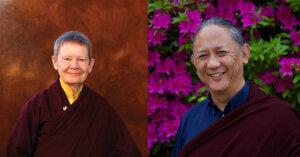
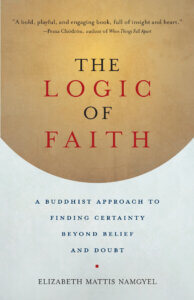
The Logic of Faith
A Buddhist Approach to Finding Certainty Beyond Belief and Doubt
by Elizabeth Mattis-Namgyel
Faith is a thorny subject these days. Its negative expressions cause many to dismiss it out of hand—but Elizabeth Mattis Namgyel urges us to reconsider, for faith is really nothing but our natural proclivity to find certainty in a world where certainty is hard to come by. And if we look carefully, we’ll discover that the faith impulse isn’t separate from reason at all—faith and logic in fact work together in a playful and dynamic relationship that reveals the profoundest kind of truth—a truth beyond the limits of “is” and “is not.” Using the traditional Buddhist teachings on dependent arising, Elizabeth leads us on an experiential journey to discover the essential interdependence of everything—and through that thrilling discovery to open ourselves to the whole wonderful range of human experience.
Elizabeth Mattis Namgyel

Elizabeth has studied and practiced Mahayana Buddhism, as well as the Vajrayana tradition of the Longchen Nyingthik, for over 30 years under the guidance of her teacher and husband, Dzigar Kongtrul Rinpoche. She has been intimately involved with Rinpoche’s work in bringing Buddhist wisdom to the West, in particular the development of Mangala Shri Bhuti. She is also a founding member and teacher of the Wilderness Dharma Movement, the Middle Way Initiative, and on the advisory boards of Prison Mindfulness Network and the Buddhist Arts and Film Festival.

